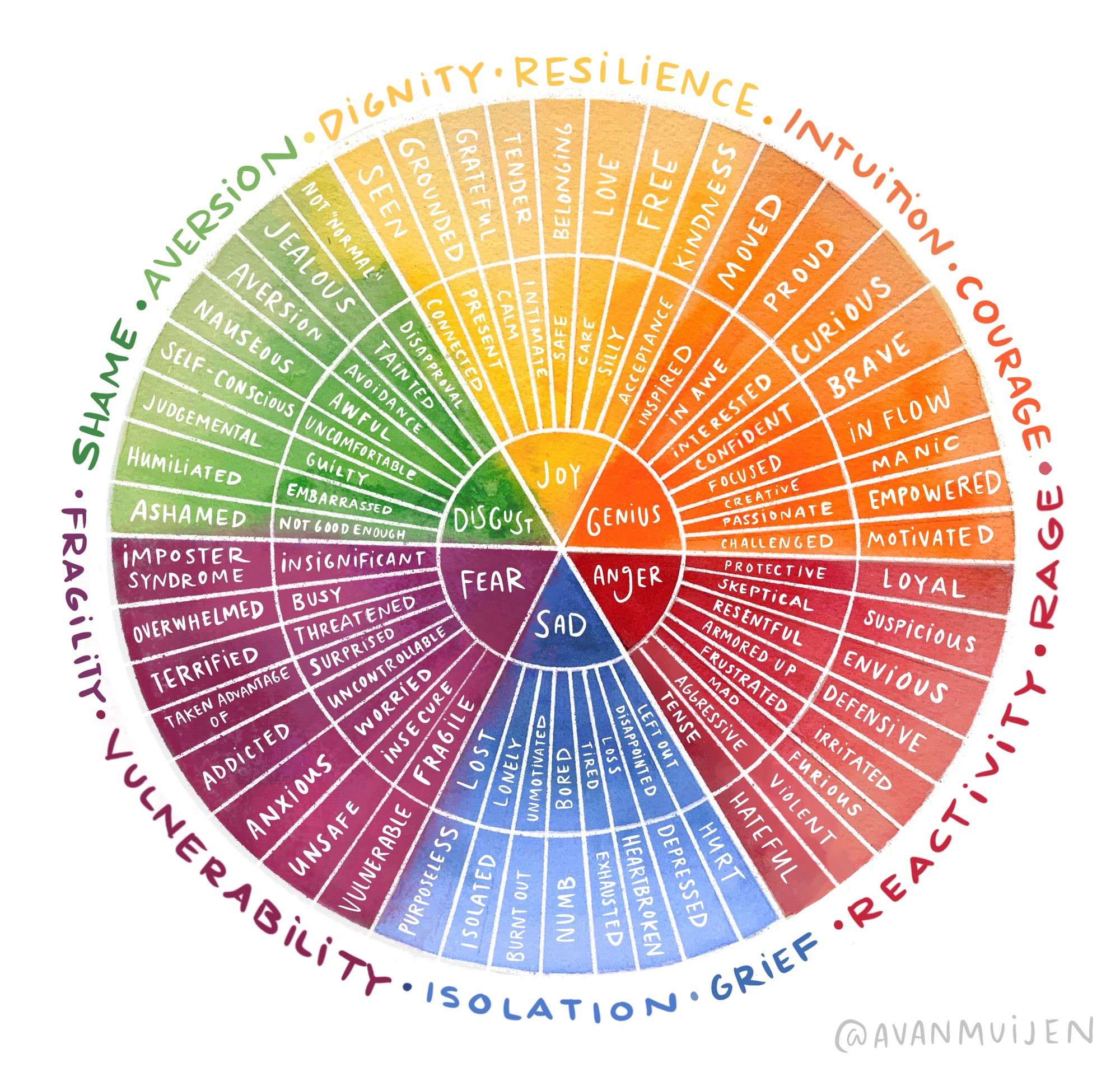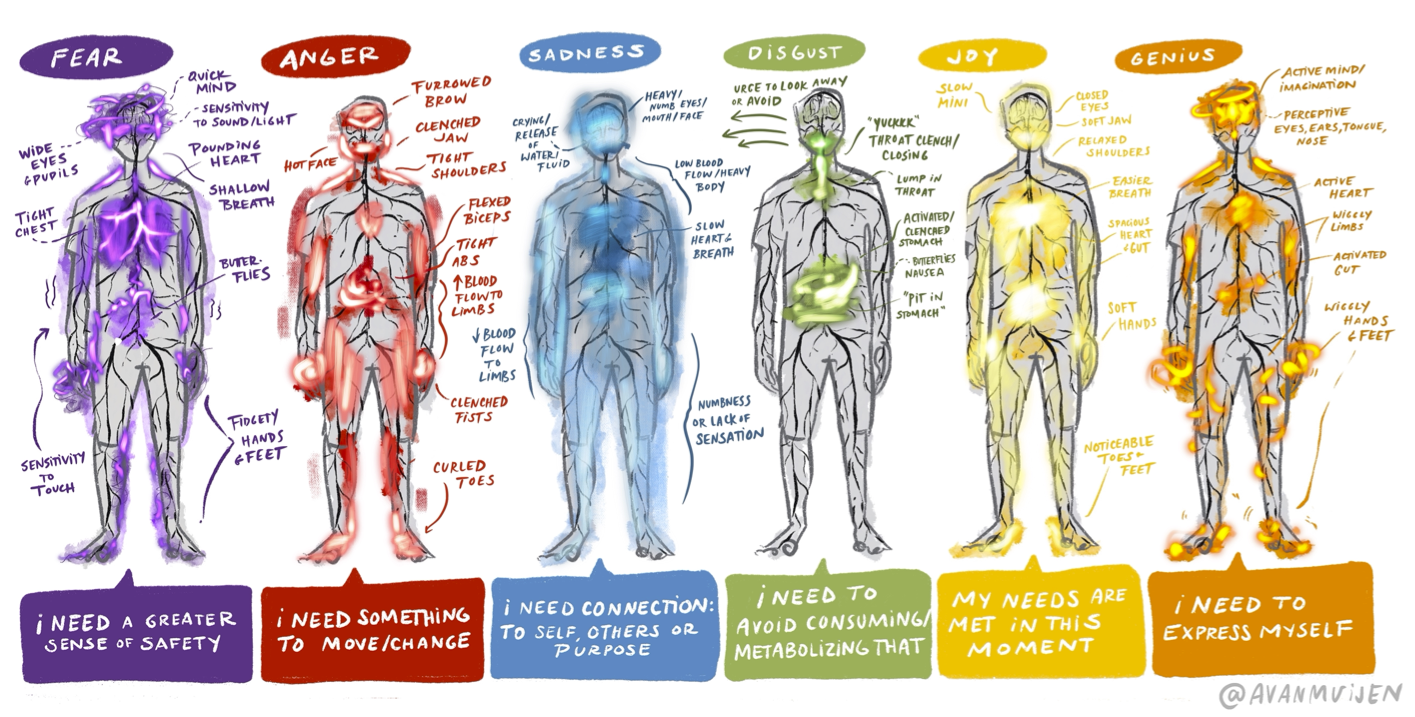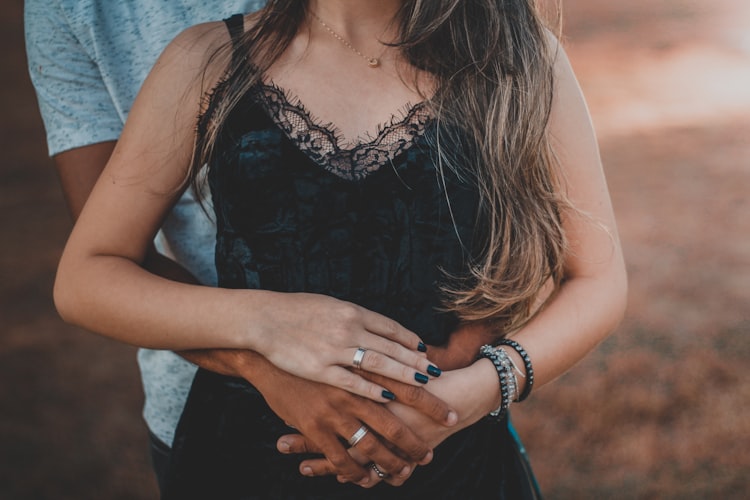Why Humans Suck at Emotional Intimacy

Our longing for intimacy is as inevitable as a seed's longing to root.
Even the most avoidant of us cannot help but try.
Without connection, we don't exist.
The deeper our connections, the more connected we feel not just with each other but with our lives.
We don't just want to feel connected. We need to.
We reach for these connections by default even when we do it with our eyes closed.
That is the truth.
If you ask me, suicide rates are a direct reflection of our inability to emotionally connect with one another as a species.
If you ask me, the better connected we are, the healthier we are, as a whole.
I think we know this, instinctually.
I think it's why as full-grown adults we still struggle with our parents' approval or disapproval.
I think it's why we spend so much time searching for love in friends and romance.
I think it's why we write and read articles like this one.
Because deep down, we all know we're reaching for this.
Reaching for intimacy comes more naturally to us than we like to give ourselves credit for.
So Why Do We Struggle to Find It?
Because when we experience our first pains from love, and grieve our first losses in love, it teaches us a big (and very false) lesson.
Love isn't safe.
The real lesson is...
We haven't yet learned how to love safely.
So instead of learning how to love safely, we run from it.
And before you say you're not in that boat...
Before you go on about how you have a more preoccupied attachment style therefore of course you reach for intimacy.
You're the most vulnerable person in your relationships, yeah?
But everyone else is just so afraid and it's a shame. You can't find anyone open and ready like you.
That's the problem, right?
Slow down, because I thought so too. Until I realized that vulnerability is a feeling. A key ingredient of which is fear.
Vulnerability is not an action or set of actions that everyone agrees on.
This can't be true, because we're all afraid of different things. Therefore, different things feel vulnerable to each of us.
When I lean more preoccupied and anxious I would leap into love without a hint of the fear of intimacy we're used to hearing about.
I was an open book. Transparent. "Available". With the best of intentions and all of the confidence.
It was charming, at first.
It wasn't until I thought that person would leave, or was losing interest, or wanted space, that truly felt fear.
The charm would evaporate pretty quickly at that point, along with any emotional availability I thought I had.
To practice vulnerability is to feel fear/risk but choose to practice trust and courage instead of folding into the fear of it all.
Did I practice trust when a partner would, say, lie about something?
The answer is no, I didn't practice trust.
I practiced questioning if these were signs that I was about to be betrayed or abandoned.
I practiced fighting for them to hear me about how hurtful that is.
I practiced not being willing to hear them because I was so intent on being heard.
They might not have been practicing intimacy by hiding something, but neither was I.
To practice vulnerability, trust, courage - to nurture the intimacy I really wanted - would've looked more like me saying...
"Hey, you lied to me, and I forgive you, but this is a big deal to me because it tells me that you weren't feeling safe to be honest with me. It's important to me that we feel safe enough to be honest with one another. Can we talk about what that looks like?"
That, I think, is an invitation to practice vulnerability together and foster intimacy.
But more often than not we practice judgment.
"You can never just have an honest conversation."
We practice indignance.
"I would never treat you like that."
We practice entitlement.
"This is relationships 101 I shouldn't have to coddle you for you to be honest with me."
And we do all of this without realizing that in those moments, we're really practicing control.
We don't realize that the most vulnerable, intimate thing we can actually practice at that moment is the art of letting go.
How?
By understanding the emotional body, and what it really needs, so we can stop battering it in the name of love.
Discovering the Emotional Body
Just like we aren't entitled to access people's physical bodies, we also aren't entitled to access people's emotional bodies.
And, just like going through the motions of sex doesn't feel like intimacy for our physical bodies...
Going through the motions of a relationship doesn't feel like intimacy for our emotional bodies, either.
This is why in a room full of the people who know us best, with our partners by our side, we can feel completely, and utterly, alone.
To feel intimately connected in our relationships, we need to understand the concept of the emotional body.
What is the Emotional Body?
Your emotional body is comprised of your feelings, and how you experience them within your body.
It's made up of these:

But it looks and feels like this:

Your emotional body consists of feelings you feel in the body and your physical reactions to those feelings.
While trauma is historically considered to be rooted in devastating physical experiences like car accidents, wartime, and physical types of abuse...
What all of those things have in common is not that they are physical and devastating.
What all of these things have in common is their tendency to leave a lasting impact on our emotional bodies.
When we think of it that way, we start to understand how many other things fall into that category:
- Being routinely judged by people whose opinions matter to us, often coupled with silencing or unwillingness to hear our truths. Which leaves us feeling rejected and frustrated at minimum. Unworthy of love, validation and acknowledgment at worst.
- Being left by someone we feel attached to and dependent on for emotional security leaves us battling with abandonment and shame.
- Feeling humiliated, embarrassed, and exposed when our privacy is breached.
- Feeling isolated, especially in times when feeling a sense of belonging is a necessary component of our ability to heal.
- Feeling attacked or dismissed when we seek safety in our loved ones.
- Feeling betrayed when we seek consistency in our loved ones.
- The list goes on.
Our physical body is a tool we use to navigate the world.
The emotional body is how we actually experience it, though.
And the mistake we make is not realizing that not only are our emotional bodies real...
We really need to learn how to treat one another's emotional bodies if we're going to create emotional intimacy with them.
Because what is emotional intimacy if not two people putting their vulnerability on the table and practicing tenderness together?
The truth is, your emotional body belongs to you, and you alone.
You know what it loves and what it hates.
Only you understand the reasons.
Only you feel the pain of when it's been hurt.
Only you bear the weight of healing that damage.
Your emotional body belongs to you and you alone therefore you set the rules.
And when someone violates those rules, what do you do?
Consciously or not, we self-protect.
The opposite of vulnerability. A true barrier to intimacy.
Because we literally cannot be truly intimate with people we don't feel safe with.
True intimacy of any kind can only happen in consensual spaces that feel safe to us.
We Aren't Creating Consensual Spaces
There's this analogy floating around that I really love.
It says the seed seeks to root.
What if it dies?
Do you blame the seed, or do you check the soil you placed it in? The light & water & nutrients you gave it?
You check the environment.
The same is true for intimacy.
It dies young in harsh climates.
It thrives in environments that are tender enough to let it breathe.
It thrives in environments that feed it.
And here's the thing; people aren't the problem.
We keep blaming who people are instead of the environments we subject them to.
People are not broken. You are not broken. The entire end point of all healing is the felt sense of knowing and understanding that it was our environments that have been broken all along.
Being "healed" is literally just your nervous system aligning with that truth.
Embodying it.
Breaking the cycle isn't as simple as breaking and rebuilding self to experience "good vibes only".
Breaking cycles is about breaking and rebuilding our environments so we can experience whole human vibes without fearing for our fucking lives.
We aren't developing intimate relationships because we aren't getting vulnerable enough to.
We aren't getting vulnerable enough because the environments we're creating together don't allow us to be vulnerable in real ways.
The environments we're creating are forcing us to:
- Jump into fight, flight, fawn & freeze responses
- Mask and fake our way through our relationships
- Take things personally instead of seeing that other peoples' behavior isn't about us, it's about them
- Beg and fight to be treated in a way that feels safe to us
- Say yes to things we don't want to say yes to
- Say no to things we actually would prefer to say yes to, like reaches for connection, for fear of judgment, rejection, ostracization, abandonment, and abuse.
To choose vulnerability, and achieve intimacy, we have to acknowledge the emotional body and create a shelter for it to exist.
Do You Practice Emotional Safety or Emotional Famine?
We have a choice in how we practice relationship. We have a choice in whether those relationships feel healthy or not.
Option #1 is to co-create a space of Emotional Famine.
A space where we aren't set up to feel heard, seen, valued, appreciated, and understood.
We have to fight for it. We lose a lot of battles, which is half the issue.
This space is for gladiating, not love.
Blood must be shed.
Option #2 is to can create a space of Emotional Safety.
The difference is that Emotional Safety feels like shelter.
Everyone in the relationship plays a role in both building and maintaining the environment.
Everyone is accountable for their strengths, weaknesses, and their role.
Everyone is on the same team.
No one gets left behind.
This doesn't just have to be a two-person romantic relationship.
This is something to be conscious and intentional about with all relational dynamics including group dynamics. Only in groups, it changes to "culture".
The culture of our friendships, work relationships, and familial relationships can all be ones of appropriate levels of emotional safety, or famine.
We decide what to strive for and how to practice loving these ways.
If there's a rupture, an environment of safety recovers quicker and more fully than unsafe environments.
Even if the rupture is permanent, famine-based environments attack vulnerability.
Famished environments meet exposure with lashing out.
Safe environments invite us to sit with our actions, and our emotions, and support one another in accountability and the expression of those things.
Safe environments give us space to reflect, share, express, heal, and thrive without fearing for our emotional and social safety.
Doesn't that sound better to you?
More importantly, how do you build that safety in your relationships and group dynamics?
The Practice
Co-Creating Emotional Safety
If you don't have a membership now's the time to grab one so you can keep reading.




